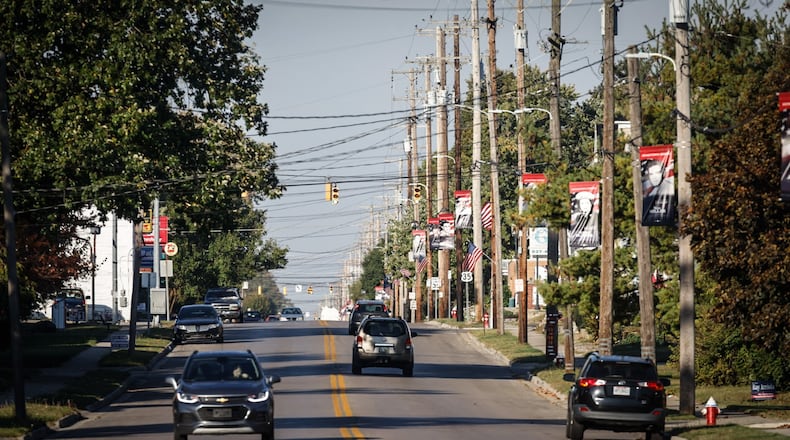Here’s a summary of the non-candidate ballot issues.
Tax levy renewal
New Lebanon has placed a five-year, 5-mill road levy renewal on the November ballot. The levy generates about $232,309 a year and costs a property owner $134 a year per $100,000 of valuation, according to the Montgomery County Auditor’s Office.
Village officials said since the initial passage of the levy in 2015, this levy has allowed the village to repair and resurface 16 streets. The continuation of this levy would extend the current millage rate for five more years, allowing additional streets to be repaired.
Charter amendments
- Personnel Appeals Board: The proposed amendment suggests to add that a member shall not be a spouse or partner or immediate family member of an employee or elected official of the municipality.
- Charter Review: The proposed amendment changes the number of members to nine and requires each member to be an elector and resident of the municipality for at least one year. However any council members, municipal employees, or immediate family of any elected officer or employee will only be considered if there is a lack of participation in the Charter Review. It further outlines that the Charter Review must review the Charter by June 1 and be submitted to electors to vote on.
- Powers, Composition and Term: The proposed amendment suggests the change to add that council members must be in good standing with New Lebanon income taxes and shall not be an employee of the Municipality.
- Qualifications: The proposed amendment suggests a change to add that the mayor must be in good standing with New Lebanon income taxes.
- Emergency Ordinances: The proposed amendment suggests a change to add what would not be considered as an emergency ordinance.
- Directors and Department Heads: The proposed change would not require Directors and Department Heads to live in the New Lebanon School District, but instead require all Directors and Department Heads who are a part of Emergency Management to make all efforts to be on site within 12 minutes upon being called to respond.
- Publication of resolutions and ordinances: The proposed amendment suggests the removal of the option to publish them in a newspaper and change to posting in three conspicuous places and add that they be posted to the official municipal website.
- Prohibitions (on the actions of employees in regard to supporting political campaigns while working for the municipality): The proposed amendment suggests changing “officer” to “elected officer.”
- Capital Program: The proposed amendment suggests the removal of the adoption of the Council.
- Qualifications of elected officers: The proposed amendment suggests a rewording as well as a change to add that the elected officer must be in good standing with New Lebanon income taxes.
- Municipal manager; qualifications: The proposed amendment suggests the change to add that the Manager must be in good standing with New Lebanon income taxes.
- Public notice before final enactment: The proposed amendment suggests the removal of the option to publish them in a newspaper and change to posting in three conspicuous places.
Aggregating electricity and natural gas in the village
Voters will have the opportunity to decide if the village should have the authority to aggregate the retail electric loads and the retail natural gas loads. Each type of utility will have its own issue on the ballot. The goal of aggregation generally is to pool hundreds or thousands of customers together in an attempt to secure a cheaper rate from a supplier.
About the Author


